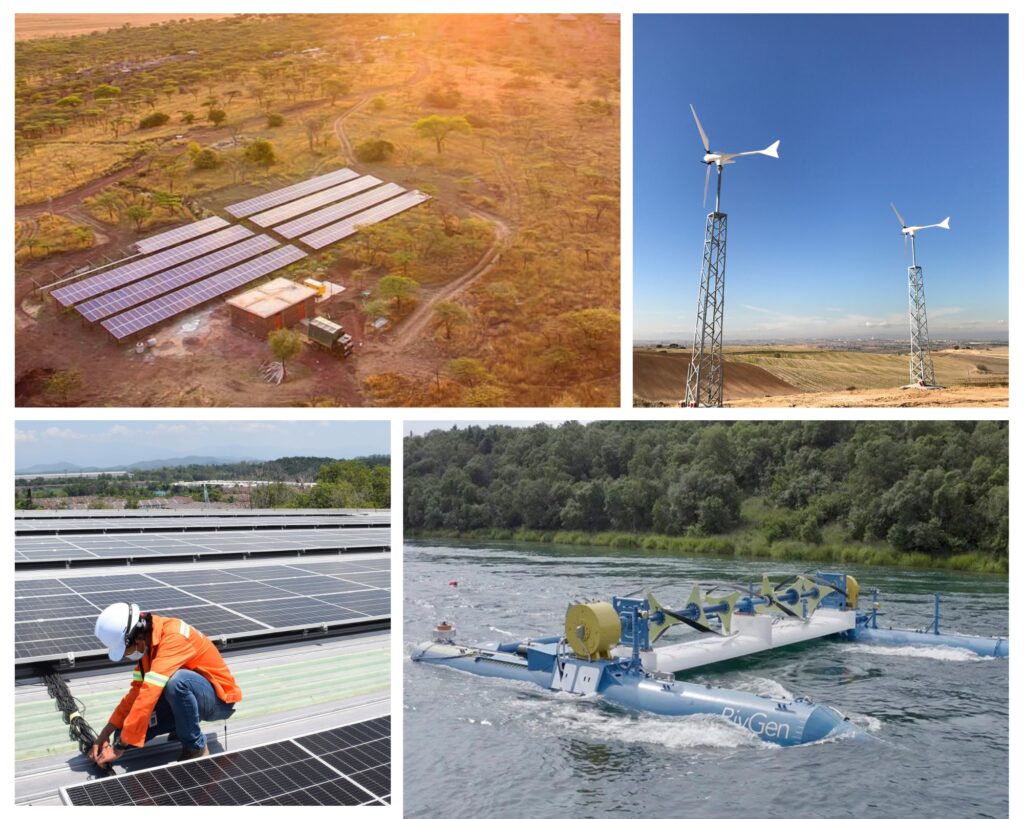Engine for progress: why renewables are the key to a sustainable future
Access to energy remains a pervasive issue worldwide, with approximately 10% of the global population still lacking it (IEA, 2022). Tackling this problem involves navigating complex policy, economic and geographical landscapes. Nonetheless, the rise of renewable electrification offers a beacon of hope in addressing these challenges and striving towards SDG 7.
Renewable sources and the potential of green hydrogen
Renewable energy sources, including solar, wind, biomass, and hydroelectric power, have witnessed significant growth in recent years. Inherently, they also have a decentralised nature which makes them particularly well-suited for providing energy access to remote and underserved communities. This decentralisation empowers localities to harness their own natural resources and become self-sufficient in energy generation. This is already happening – over 150 ARE Members work with solar PV, around 40 utilise wind energy, while roughly 30 companies focus on bioenergy, and 45 companies work with hydropower. There are also over 100 ARE Members offering energy storage solutions.
Another promising avenue in the quest for sustainable energy is green hydrogen. This clean fuel, produced through electrolysis using renewable electricity, holds immense potential for achieving zero-carbon objectives. Its versatility spans various applications, from powering vehicles to facilitating industrial processes, offering a viable pathway to decarbonisation. Leading the charge, 11 ARE Members are already actively involved in developing and implementing green hydrogen solutions.

Clockwise: GadgetroniX, Ryse Energy, ORPC, PESTECH
ARE’s impact
ARE uniquely federates all DRE technologies and system sizes. Building on its Members’ collective efforts, the Alliance works to overcome barriers to energy access. In this vein, ARE’s flagship event, Energy Access Investment Forum 2024, scheduled for 21-23 May in Lagos (Nigeria), aims to foster collaboration between ARE Members, private sector, and investors to catalyse partnerships and drive sustainable energy investments. Over 1,000 participants are already registered for both on-site and virtual attendance. You can still book your exhibition stand to be part of this unique experience.
Moreover, ARE actively engages in global events to promote clean energy access agendas. Recently, the Alliance participated in the Uganda-EU Business Forum in Kampala with a delegation of ARE Members and contributed to the Future of Energy Summit in Amsterdam. Additionally, ARE joined discussions at the 14th IRENA Assembly and World Future Energy Summit in United Arab Emirates. Such engagements underscore ARE’s commitment to scale up clean energy projects and foster international cooperation.
Furthermore, a skilled workforce is essential for the success of renewable electrification projects. The CORE Initiative, managed by ARE, plays a pivotal role in training practitioners across Africa, Asia, and Latin America. With 32 training sessions conducted in 15 countries, the initiative has equipped 2,419 individuals to date with the necessary skills to drive renewable electrification projects forward. Furthermore, the ARE Investment Academy facilitates access to funding, empowering companies to realise their plans. These two efforts combined cover the essential skills to boost the deployment of renewable electrification projects worldwide.
Clean energy is the future
Clean energy access, notably via DRE systems, enhances livelihoods, uplifts living standards, empowers women, facilitates children’s education, enables better healthcare access in rural areas, and fosters overall human development and well-being. Clean energy isn’t just a solution – it’s an engine for progress, with the power to overcome the global energy access challenge.

